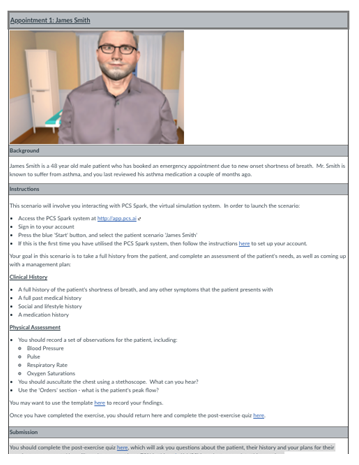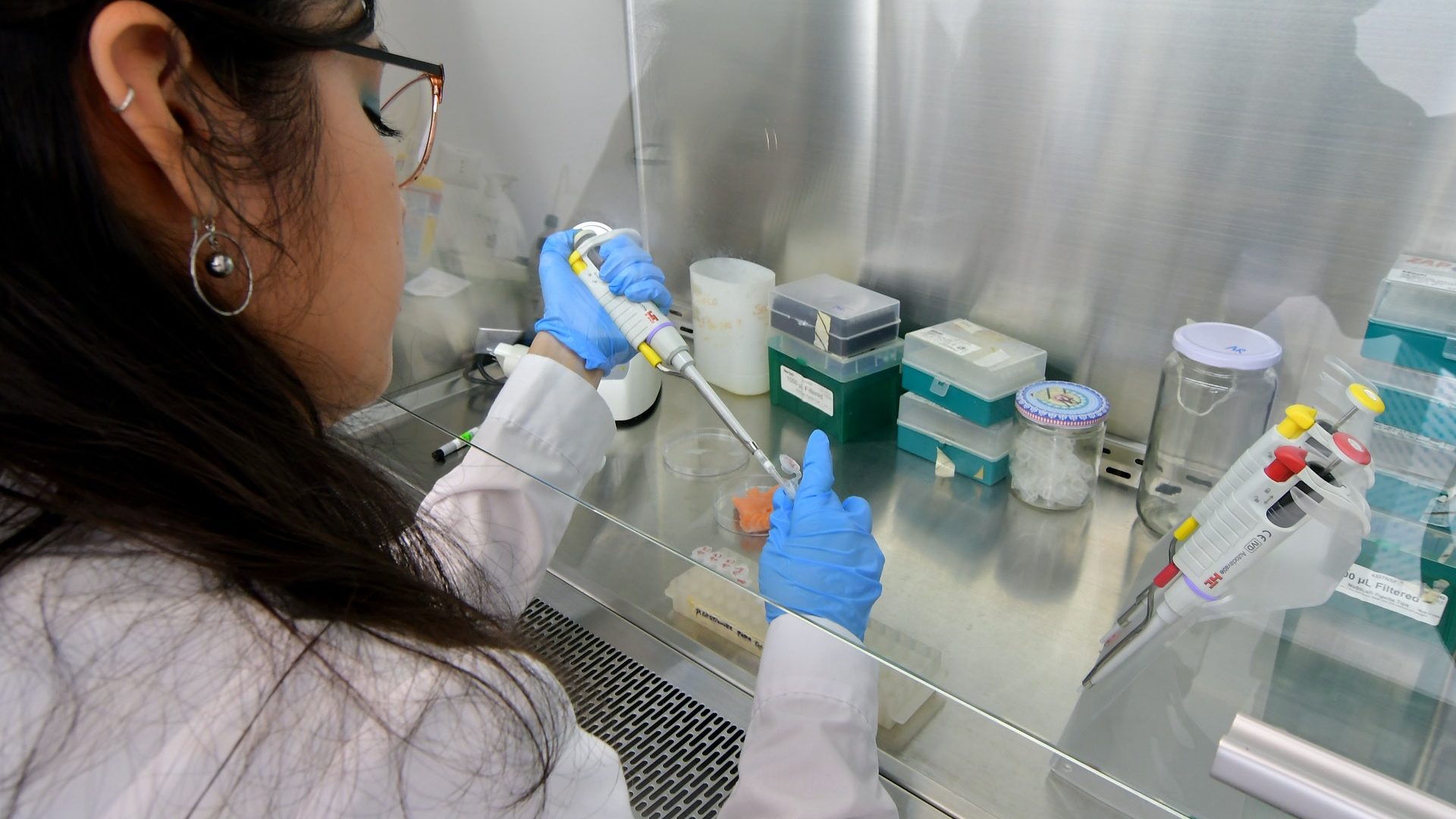Experiential Learning, Simulations and Serious Games
Date: 05/01/21
Jonathon Davies
Summary
Jonathan has used a number of creative approaches to design a virtual experience for his pharmacy students that provides feedback and helps monitor progress.
Further Information:
Subject Area:
Pharmacy
Level: 7
Class Size: 90
Keywords
Assessment, Feedback, Flipped Learning, Gamification, Lectures, Panopto, Quizzes, Simulation, Student Engagement, Summative, Webinar Tools
Case Study:
Jonathan is using the PCS Spark system to create scenarios for individual students to apply their developing skills and knowledge. This system is built on the latest machine learning technologies to deliver conversational AI for patient-provider interview training. Students can interact directly with a virtual patient and perform basic physical assessments (including listening to the patient’s heart and lung, checking their blood pressure and taking the patient’s pulse), all of which are all tailored individually to the specific case. It also provides instant and automated assessment at the end of each scenario letting students know which areas need improvement.
The programme was initially utilised to demonstrate key skills and knowledge in face-to-face and virtual teaching and controlled by a staff member in the early part of Semester 1, with students having independent access to the system and a facilitated demonstration of the system in Week 3. Following this, scenarios were then introduced gradually throughout the academic year.
This simulation tool was connected with online lectures and Canvas quizzes all leading to a series of 'Experiential Learning Days', in Week 8. These days, developed in combination with a team of pharmacist teacher-practitioners, were intended to support the student in developing and building skills, refining and developing clinical decision making skills and broadening the student’s understanding of the role of pharmacists across multiple sectors of practice. Students were placed in the role of the pharmacist for a day, and had to work through a series of scenarios and enquiries intended to accurately represent a day in the life of a pharmacist working in the area of practice. Students were asked to complete post-exercise quizzes and activities which asked questions about the patient cases, their history and the student’s plans for their ongoing management. Feedback was provided through an end of day Panopto recording, unlocked using Canvas module requirements and pre-requisites, with students having to score 70% in post-exercise quizzes to access the feedback. Scenarios could be re-run any number of times to allow students to collect additional information to inform their decision making and ensure they were able to meet the required standard.
With the provision of workplace-based placements currently challenging due to the impact of COVID, the intention of these days was to find ways for his pharmacy students to experience work-based learning, to manage and make decisions relating to patient care in a virtual environment. Elements of serious game and escape room design were utilised in order to maintain a level of interactivity through a number of different mechanisms. The design of scenarios, and post-scenario activities were intended to ensure activities were interactive, and to try and make these asynchronous activities feel more like an actual day at work.

Some of the mechanisms that were explored included:
- Recorded ‘handover’ videos, introducing students to the activities and intended learning outcomes of the sessions
- The use of passwords or codes to protect sensitive documents, with passwords revealed through interaction with simulated patients
- Students being required to record voicemail messages for patients in response to patient enquiries.
Award: Jonathan won the LJMU Excellence in Technology Enhanced Learning 2020
